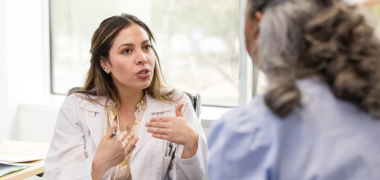
This role has a high level of AI exposure. While some human skills are required, many tasks could be automated or replaced by new technology.
Explore all careersA Clinical Scientist analyses biological samples and develops testing methods to aid disease diagnosis and treatment in healthcare settings.
Get qualified to work as a Clinical Scientist with a course recognised across Australia. Speak to a training provider to learn more.

Browse occupations related to Clinical Scientist



If you are aspiring to advance your career in the healthcare sector, pursuing Clinical Scientist courses in Gisborne could be the perfect pathway for you. Located in the vibrant region of Gisborne, 3437 Australia, these courses equip students with the essential skills and knowledge needed to excel in various clinical settings. With institutions like RMIT University offering accredited training, you can rest assured you are receiving quality education that is recognised by the relevant industry bodies.
Among the available options, the Bachelor of Laboratory Medicine (Honours) stands out as an excellent choice for those with prior experience or qualifications. This course delves deeply into laboratory practices and methodologies, preparing students for real-world clinical challenges. Graduating from this programme not only enhances your technical competencies but also positions you as a competitive candidate for various high-level roles in the healthcare sector.
Pursuing a career as a Clinical Scientist opens doors to several related professional roles, especially for those living in and around Gisborne. You might find yourself interested in roles such as a Medical Laboratory Technician, Pathology Assistant, or a Phlebotomist. Each of these positions plays a crucial role in patient care and laboratory operations, and the skills you acquire during your studies will be invaluable for any of these career paths.
If you choose to further explore opportunities, you may also want to consider becoming a Medical Laboratory Scientist or a Medical Scientist. These roles often require more specialised knowledge, making a thorough understanding of laboratory practices vital. Alternatively, you might find interest in positions such as Pathologist or Medical Researcher, both of which contribute significantly to advancements in medical science.
In summary, enrolling in Clinical Scientist courses in Gisborne is an excellent way to build a rewarding career in the medical field. With access to quality education from trusted providers like RMIT University, you are well on your way to gaining the expertise necessary for a variety of roles in the clinical world. Take the first step towards your future today and explore the exciting possibilities that await you!